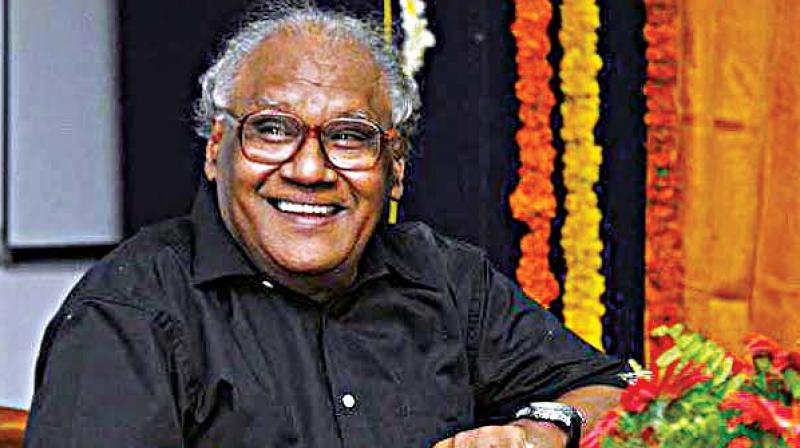India's Ratna CNR Rao missed the Nobel Prize and how!
C.N.R. Rao received the maximum number of votes from chemists across the world in the choice for the Nobel Prize in 2016.

BENGALURU: Call it a case of the proverbial slip between the cup and the lip for Bharat Ratna Prof C.N.R. Rao who has missed this year’s Nobel Prize in Chemistry by a whisker!
Chemistry Views, a famous international journal, has announced that a survey conducted by the publication, found Prof C.N.R. Rao received the maximum number of votes from chemists across the world in the choice for the Nobel Prize in 2016. The result of the survey was announced a fortnight after the Royal Swedish Academy of Sciences announced the prize this year “for the design and synthesis of molecular machines” to Jean-Pierre Sauvage (France), Sir J Fraser Stoddart (USA) and Bernard L Feringa (The Netherlands).
“A tiny lift, artificial muscles and minuscule motors. The Nobel Prize in Chemistry 2016 is awarded to Jean-Pierre Sauvage, Sir J. Fraser Stoddart and Bernard L. Feringa for their design and production of molecular machines. They have developed molecules with controllable movements, which can perform a task when energy is added. The development of computing demonstrates how the miniaturisation of technology can lead to a revolution. The 2016 Nobel Laureates in Chemistry have miniaturised machines and taken chemistry to a new dimension,” said the press release issued by Academy on October 5 while announcing the winners of the coveted prize.
Prof Rao, who declined to comment on the decision of the Academy, however, told Deccan Chronicle “I am really surprised because I am way above the others (in terms of votes polled.) Many friends like Prof Anthony Cheetham (vice president of The Royal Society, London), have written to me, wishing that I make it (win the coveted prize) next time.” Sources said two of the four-member jury which decides the winner of Nobel Prize in Chemistry are biologists and therefore the winners are often biologists. For instance, Venkataraman “Venki’ Ramakrishnan, an Indian-American-British structural biologist, and current president of the Royal Society, shared the Nobel Prize in Chemistry with Thomas A Steitz and Ada Yonath “for studies of the structure and function of the ribosome” in 2009.
